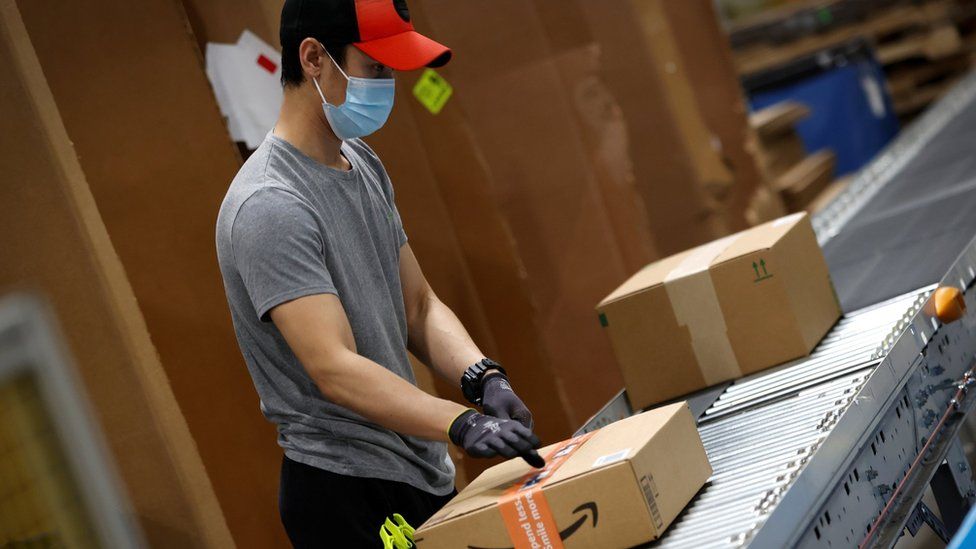Amazon is raising the price of its Prime service for US customers after reporting record sales and profits.
The e-commerce giant said it was hiking the price by 17% to $139 for annual membership.
The firm, which cited increased wage and shipping costs, said it had no announcements to make about other countries “at this time”.
It is the first increase since 2018 for Prime, which gives subscribers access to benefits like faster shipping.
More than 200 million people globally pay for the service, many of them in the US.
Amazon shares soared almost 15% in after hours trade on the news, which accompanied the release of its end of 2021 performance.
Sales for the last three months of 2021 expanded by 10% year-on-year to $137.4bn. But those gains were driven by growth in areas like its cloud computing division, Amazon Web Services, and advertising, while its e-commerce sales dipped from 2020, when the pandemic propelled blockbuster gains.
The firm’s profits in the quarter also jumped, to $14.3bn – almost double the prior year. Its investment in electric vehicle maker Rivian, which floated on the stock market in November, drove those increases.
For the year, sales rose 22% to $469.8 billion, sending profits to $33.4bn.
Analysts had been worried about how the firm would fare, after executives warned last year they were seeing higher costs due to supply issues and difficulty hiring workers.
Amazon said those challenges had hurt – and were likely to continue this year. It forecast sales growth of 3%-8% in the first three months of 2022.
“As expected over the holidays, we saw higher costs driven by labour supply shortages and inflationary pressures, and these issues persisted into the first quarter due to Omicron,” chief executive Andy Jassy said.
“Despite these short-term challenges, we continue to feel optimistic and excited about the business as we emerge from the pandemic.”
The company said inflation, including higher wages, drove $4bn more in costs in the final months of 2021. With the increase in the Prime fees, the firm is moving to shift some of those costs to customers.
Mr Jassy said some may quit Prime due to the fee increase, which goes into effect on 18 February for new members and will apply after 25 March to existing subscribers.
But he said that hadn’t been a problem in the past.
Consumer spending in the US has remained strong, despite prices rising at a 7% rate last year – the fastest inflation in nearly four decades.


























